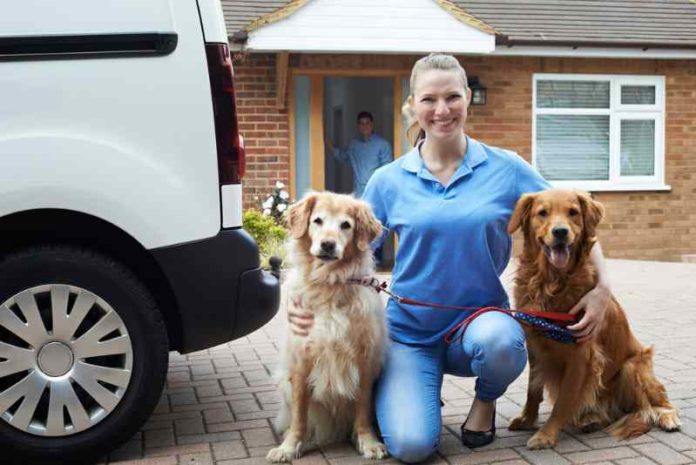By Jenna Cyprus
Aspiring entrepreneurs who are also animal lovers like to dream about starting a business that allows them to interact with pets on a daily basis. Setting aside the possibility of veterinary care, you could walk dogs for a living, set up a pet daycare, or even sell pet-related fashion accessories.
But just how feasible are pet-centric businesses? And are they capable of turning a profit?
Types of Pet-Centric Businesses
Let’s start by evaluating the different types of businesses centered on pets, and the unique pros and cons of each one:
- Dog daycares. Dog daycares and franchises can be enormously profitable because you can watch many dogs at once, maximizing your revenue while keeping your overhead costs consistent. However, establishing a new business or opening a franchise can cost quite a bit of money upfront.
- Walking and sitting. Pet walking and/or pet sitting is not intensive work; you don’t need any special training or many special supplies to do it. The flip side is, you won’t be able to charge as much for your services—making this more approachable, but less profitable overall.
- Grooming services vary wildly based on the level of experience you want to provide. Affordable grooming is relatively approachable, but higher-end grooming requires far more supplies, and much more experience from the groomer.
- To be a trainer (mostly for dogs), you’ll need to undergo some training of your own. You’ll need to become an expert in pet behavior before people are willing to spend money with you, but once you do, you’ll be able to rake in far more revenue.
- Treats and supplies. You could also build a business that revolves around making homemade pet treats, or producing other common pet supplies (like leashes or toys). Again, this is approachable, especially if you have a creative mind, but profit margins might make it tighter than other opportunities.
- Unique products. Finally, you could create more unique products for pets, such as more ergonomic poop-removing tools, costumes that mimic other animals, or outerwear designed to make pets more comfortable in the cold. There are unlimited opportunities in this space, but you’ll probably veer outside the norm for mainstream demand.
Key Advantages
So what are the core advantages that a pet-related business offers? (Apart from getting to work with pets hands-on)
- There’s certainly no shortage of demand for pet-related services. More than two-thirds of U.S. households own pets, with 60.2 million households owning dogs and 47.1 million owning cats. Many of these households hold their pets in high regard, and would be more than willing to spend money on products and services that amuse or improve their pets’ health.
- Customer loyalty. People have strong bonds with their pets, often treating them like family members. Accordingly, they want the best care for them. If and when they find a service provider who gives them the service they want, they’re going to stick with them forever. That makes it easy to build a business with customer loyalty.
- Pets aren’t a fad. They’re likely going to be a part of our families for the indefinite future, with little to no room for automation or AI taking over jobs in this field. That means you’ll likely have no trouble scaling the business and keeping it consistent over the years to come.
Key Disadvantages
There are also some pet-centric disadvantages to consider:
- Competition and margins. Pet care is already a $72.13 billion industry, and because pets are so loved in the United States, they’re a common focus of new entrepreneurs. That means you’re going to face stiff competition when trying to market your services, and unless you offer something truly unique, you’ll probably have to offer low prices—and accordingly, low profit
- Destruction and unpredictability. Dealing with pets can also be an unpredictable business. Your dog daycare may have to deal with occasional bouts of destruction, or even dogs fighting with each other. It helps to be trained in handling animals, but there’s only so much you can do.
- The pet care industry is also subject to stricter regulations than other industries. You may not be allowed to have pets in certain areas, or may need additional licensure to provide certain services.
- Upfront investment (in some cases). If you’re creating your own line or products, or purchasing a separate place to host pets, pet-related businesses can require a massive upfront investment. Professional training can also be both time- and cost-intensive.
It’s definitely possible to create a business that revolves around pets and still makes a nice profit. However, you’ll still need to do your research to determine which type of business works best in your area, what competition you’ll face, and how you’ll be able to offer affordable services will still making enough to get by.
Jenna Cyprus is a freelance writer from Renton, WA who is particularly interested in travel, nature, and parenting. Follow her on Twitter.
Pet-centric stock photo by SpeedKingz/Shutterstock







